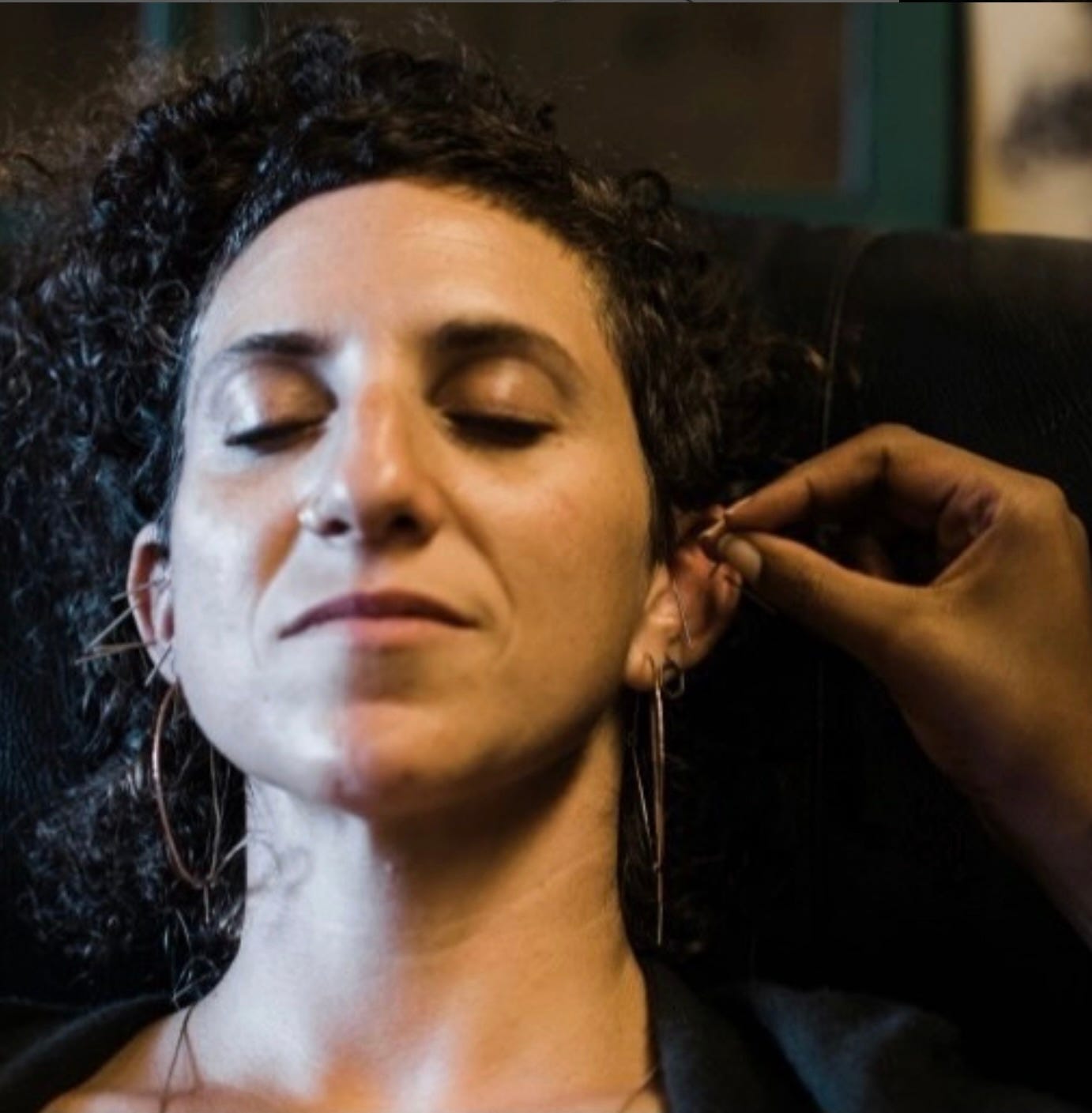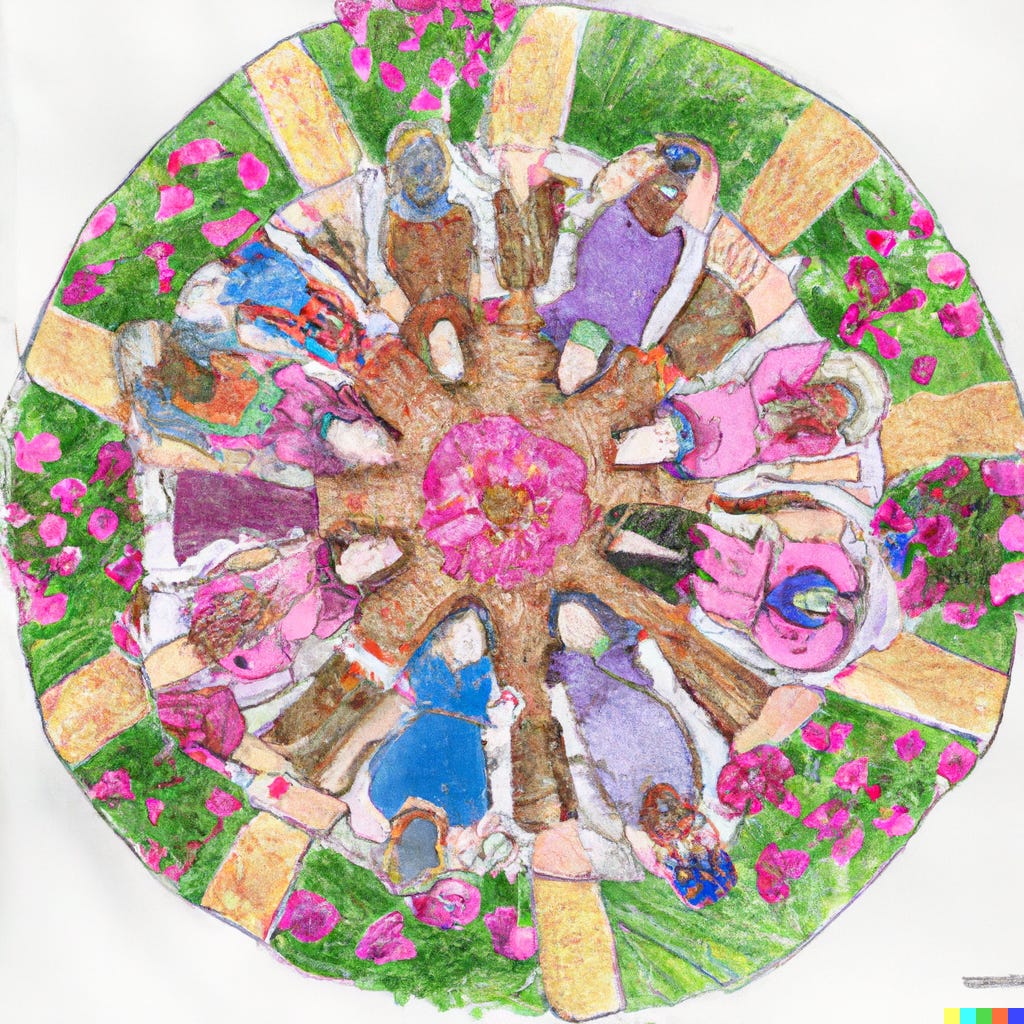This is the second half of an interview with Alison Noice, Executive Director of CODA, Inc. Founded in 1969, CODA is one of Oregon’s largest not-for-profit substance use treatment providers. WCA has had one or more onsite clinics at CODA’s facilities since 2016. The first half of the interview (WCA and CODA’s meet-cute) is here. Happy Valentine’s Week!
Me: Picking up where we left off — what’s your vision for 5NP?
Alison: If acupuncture in 2016 was a “nice to have” as part of our service array, in 2023 it’s a must. Fentanyl has completely overtaken the drug supply, and co-use with powerful stimulants is incredibly common. What that means is, our patients are suffering in heightened ways and for longer periods of time than we’ve ever seen. Suddenly, medications aren’t as immediately effective as we’re accustomed to, and patients are struggling to stay in residential programs because the withdrawal symptoms are very prolonged. It’s been really challenging to see the treatments we’re accustomed to simply not working as well. It feels like we’re modifying and updating protocols at breakneck speed, which is not something this field is known for. Those first few days to weeks — where you’re helping someone detoxify and to consider a new way of life — are critical. Critical because they are the first steps on a long road, but also because overdose risk is incredibly high.
Once again, I found myself looking to acupuncture (5NP, specifically) to see how it can fill the gaps.
And those gaps aren’t just in our protocols. They appear in our staffing patterns, which are pretty much at the mercy of workforce shortages right now. Qualified counseling and medical staff are few and far between, so we need to focus those services and complement them with others.
Me: We have similar workforce problems. Talking about them with you is very validating! It’s good for my sanity, to know that acupuncture isn’t the only industry where the cost and the difficulty of entering the workforce doesn’t match what people can earn once they’re in it.
Right around the time that Will Miller at NAYA Action Fund and I started discussing 5NP, you and I had another coffee date here at the Bison and you told me about how CODA was working with Washington County to create a large new facility on the west side to provide everything in one place: assessment and triage, residential treatment, sobering, and withdrawal management (also known as, “detox”). That’s such amazing news, and so needed! And you said you’d like to expand acupuncture services there.
And I was like, if you told me this a couple of years ago I would’ve started crying into my latte, because WCA can barely staff the contract we have with CODA now. It’s been an issue for us the whole time, it’s our chicken and egg problem — we wouldn’t have started an acupuncture school unless we needed community acupuncturists, but now we’re struggling to find clinical supervisors to staff a student clinic at CODA, and even regular L.Acs who want to work in that setting. If there were large numbers of people who wanted to provide community acupuncture, we wouldn’t have needed to do all this grinding bureaucratic work to create a school in the first place. There’s not a lot of money in our world to pay people; you have to find those people who have their own (compelling) reasons for being community acupuncturists. Which is hard.
So I said to you: There’s the staffing problem — of course, as usual — but you know what, there just might be another option. Would you like to help us change the law in Oregon?
And just like the first time, you didn’t look at me like I was out of my mind or run away in horror. I think what you said was, how interesting -- it seems our timing is lining up again.
Alison: You happened to catch me at a time where I was getting increasingly interested in participating in policy and legislation at the state level. Behavioral health investments are front and center in a way I’ve never seen. As an Executive Director of an organization with significant reach, I feel some responsibility to participate in those processes.
I see 5NP as a vehicle to grow a different part of the workforce. Our pipeline for counselors and medical staff is narrow and it’s going to take years to reverse the trend. The more ways that we can engage other workers in other roles, the more ways we can engage our patients. Which is what providing acupuncture is all about for us.
As you were describing the 5NP efforts, I could immediately see it as a natural extension of the effort to bring people with lived experience of substance use disorder into the treatment workforce. Offering the opportunity to be trained in 5NP is another way to invest in them and to increase their capacity.
Me: That’s very exciting from a solidarity point of view. Plus those folks are often really, really good at providing 5NP; their empathy is stellar. Becoming proficient at needling ears is mostly about having the opportunity to practice a lot (speaking from personal experience) — it’s absolutely a skill that trained laypeople can excel at.

Alison: One of the things that has always distinguished CODA from other behavioral health providers is that we embrace a narrow scope of practice, intentionally. We are exclusively focused on treating substance use disorders. There are a number of reasons for it, but essentially it’s so we can excel at a few things rather than trying to be all things.
It’s not the most popular position to take in behavioral health, because it can appear like we’re drawing an arbitrary line around just one part of a person. People love to emphasize the need to treat the “whole person”. And while I agree with the idea, the reality is our delivery systems, payment models, and workforce aren’t necessarily supported that way. We’re in no position to say we can be expert in all the ways someone might need help. But we can recognize what is out of our scope and ensure that we are good partners to those who are expert where we are not.
Me: Which is another thing we have in common. From the time we opened WCA, people have been like, but what about naturopathy, what about massage, why don’t you add those things to your clinics? And we’ve always been like, no – we only do acupuncture, and furthermore we only do community acupuncture. Doing community acupuncture with CODA as a partner is a perfect fit for us.
Having limits isn’t a bad thing, it doesn’t mean what you’re doing is inferior – it means you’re being intentional. Embracing limits gives you better odds of being successful at what you set out to do. Especially when what you’re doing is difficult.
So it’s natural for us to support the idea of people providing only 5NP, and doing it really well.
Alison: In my experience, the most successful partnerships that CODA has are with organizations that are comfortable with a narrow focus.
Me: And that’s the cool thing about partnerships — that we can expand our contribution not through trying to do everything ourselves, but through cooperation with other organizations who are focused on doing their own thing and doing it well.





